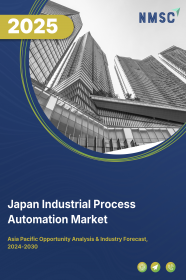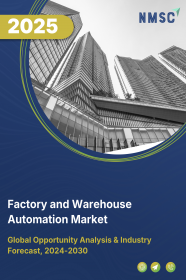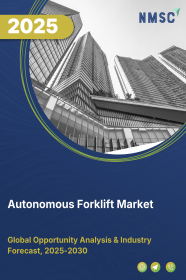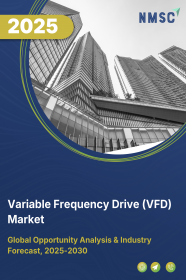
Japan Industrial Process Automation Market by Component {MES (Hardware, Software, Services); DCS (Hardware, Software, Services); PLC (Hardware, Software, Services); SCADA (Hardware, Software, Services); Field Instruments; Industrial Robots; Human Machine Interface; Industrial PCs; Process Analyzers & Drives} and by End User (Oil & Gas, Chemicals & Refining, Energy & Power, Pulp & Paper, Metals & Mining, Pharma, & Others) – Global Opportunity Analysis and Industry Forecast, 2025–2030
Industry: Semiconductor & Electronics | Publish Date: 31-Oct-2025 | No of Pages: 159 | No. of Tables: 121 | No. of Figures: 66 | Format: PDF | Report Code : SE1000
Industry outlook
The Japan Industrial Process Automation Market size was valued at USD 1.94 billion in 2024 and is projected to grow to USD 2.18 billion by 2025. Additionally, the industry is expected to continue its growth trajectory, reaching USD 3.49 billion by 2030, at a CAGR of 10.3% from 2025 to 2030.
The market is being driven by rising investments in intelligent robotics and the widespread adoption of automation technologies across manufacturing and logistics, with robotics and AI-driven systems streamlining workflows, enhancing productivity, and strengthening global competitiveness; however, security risks and data privacy concerns remain key barriers, as network-connected systems face vulnerabilities that slow adoption, while the integration of AI and ML presents a major growth opportunity by enabling predictive maintenance, real-time optimization, and smarter workflows that reinforce Japan’s leadership in intelligent automation and smart manufacturing.
Rising Investments in Intelligent Robotics Accelerate the Japan Industrial Process Automation Market Growth
The surge in investments for intelligent robotics in Japan is significantly driving the adoption of industrial process automation. Industries are increasingly seeking advanced solutions to enhance efficiency in manufacturing and logistics operations. Intelligent robotics platforms are being deployed in tasks such as palletizing, bin picking, and automated assembly, streamlining workflows and reducing human error. These investments are fostering technological advancements that not only improve operational efficiency but also enable the development of scalable automation solutions across diverse industries. This momentum underscores Japan’s leadership in robotics innovation and its strong push toward industrial automation.
Widespread Adoption of Automation Strengthens Industry Efficiency
The widespread adoption of automation technologies in Japan is further fueling market growth as industries focus on improving productivity, reducing costs, and ensuring consistent product quality. Automation systems are being integrated into manufacturing processes to optimize performance, support continuous operations, and enhance competitiveness in global markets. Robotics and AI-driven solutions are becoming vital tools for addressing the growing demand for precision, flexibility, and adaptability in industrial workflows. This trend highlights the nation’s increasing reliance on automation to drive efficiency and support the advancement of its manufacturing and logistics sectors.
Security Risks and Data Privacy Concerns Restrict the Japan Industrial Process Automation Market Expansion
Despite strong adoption, security risks and data privacy concerns present challenges to the growth of industrial process automation in Japan. The integration of automation systems with digital networks exposes businesses to cyber threats, including data breaches and unauthorized system access. These risks make organizations cautious about fully embracing automation technologies, slowing the pace of implementation. Addressing cybersecurity and establishing stronger data protection frameworks will be critical to ensuring the sustainable growth of the automation market in the country.
AI and ML Integration Unlocks Future Growth in Industrial Process Automation
The integration of artificial intelligence (AI) and machine learning (ML) represents a major opportunity for industrial process automation market in Japan. These technologies enhance predictive maintenance, optimize workflows, and enable real-time decision-making with minimal human intervention. By driving efficiency, precision, and innovation, AI and ML solutions are poised to transform industrial operations across sectors such as automotive, electronics, and logistics. Their adoption will strengthen Japan’s global competitiveness and support long-term market expansion in the era of smart manufacturing.
Competitive Landscape
The promising players operating in Japan industrial process automation industry are Yokogawa Electric Corporation, Mitsubishi Electric Corporation, Emerson Electric Co., Honeywell International Inc., ABB Ltd., Siemens AG, Schneider Electric SE, Rockwell Automation, Inc., Fuji Electric Co., Ltd., Omron Corporation, Azbil Corporation, Endress+Hauser, KROHNE GmbH, SMC Corporation, and Toshiba Corporation, and Others.
Japan Industrial Process Automation Market Key Segments
By Component
-
Manufacturing Execution Systems
-
Hardware
-
Software
-
Services
-
-
Distributed Control Systems
-
Hardware
-
Software
-
Services
-
-
Programmable Logic Control
-
Hardware
-
Software
-
Services
-
-
Supervisory Control and Data Acquisition (SCADA)
-
Hardware
-
Software
-
Services
-
-
Field Instruments
-
Industrial Robots
-
Human Machine Interface
-
Industrial PCS
-
Process Analyzers & Drives
By End-User
-
Oil & Gas
-
Chemical & Refining
-
Energy & Power
-
Pulp & Paper
-
Metals & Mining
-
Pharma
-
Cement & Glass
-
Others
Key Players
-
Yokogawa Electric Corporation
-
Mitsubishi Electric Corporation
-
ABB Ltd.
-
Siemens AG
-
Schneider Electric SE
-
Rockwell Automation, Inc.
-
Fuji Electric Co., Ltd.
-
Omron Corporation
-
Azbil Corporation
-
Endress+Hauser AG
-
KROHNE GmbH
-
SMC Corporation
-
Toshiba Corporation
Report Scope and Segmentation
|
Parameters |
Details |
|
Market Size Value in 2025 |
USD 2.18 billion |
|
Revenue Forecast in 2030 |
USD 3.49 billion |
|
Value Growth Rate |
CAGR of 10.3% from 2025 to 2030 |
|
Analysis Period |
2024–2030 |
|
Base Year Considered |
2024 |
|
Forecast Period |
2025–2030 |
|
Market Size Estimation |
Billion (USD) |
|
Growth Factors |
|
|
Companies Profiled |
15 |
|
Market Share |
Available for 10 companies |
|
Customization Scope |
Free customization (equivalent to up to 80 working hours of analysts) after purchase. Addition or alteration to country, regional, and segment scope. |
|
Pricing and Purchase Options |
Avail customized purchase options to meet your exact research needs. |

















 Speak to Our Analyst
Speak to Our Analyst
























